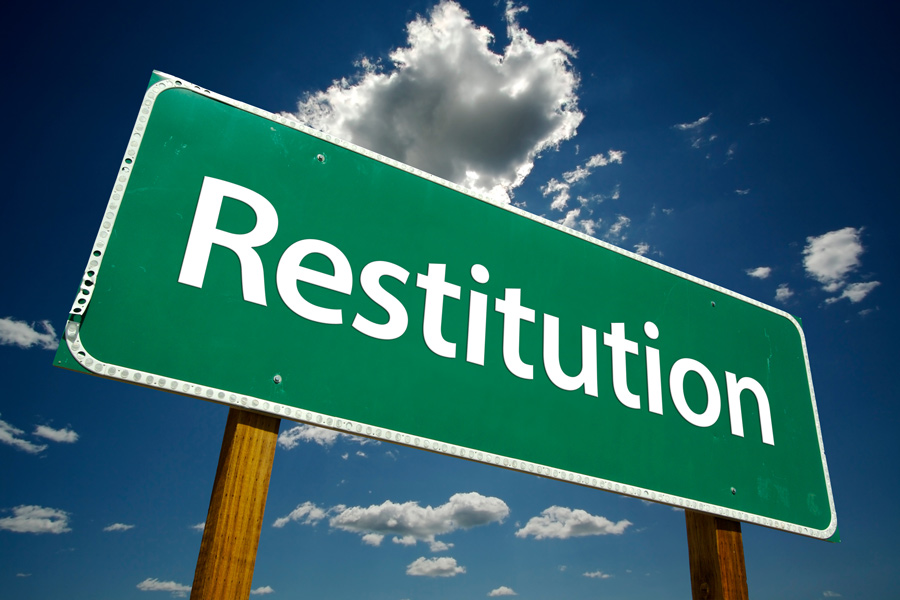Restitution

Frequently Asked Questions
What is Restitution?
Restitution means that the offender who committed the crime must pay the victim back for any crime related bills. When the offender is sentenced, the judge issues several orders. The judge must require the offender to pay restitution fines, restitution orders, other fines and penalty assessments. The restitution order is the amount the offender must pay back the victim or the Victim Compensation Program for crime-related expenses. The judge makes this order when the offender is sentenced. The judge must order the offender to pay restitution for the entire amount of those losses.
What if the offender is a juvenile?
If the offender is a juvenile (under the age of 18), the judge is still required to order restitution. The offender’s parents or legal guardians may also be held responsible for the restitution payments.
How will the judge know what the losses are?
The district attorney’s office will tell the judge how much the offender owes the victim. In order to obtain restitution, the victim must provide the District Attorney with the necessary documentation to support the claim. If that amount is disputed by the defendant, the court may require a hearing to determine the amount owed.
Here are simple steps for the victim to follow so that they can be repaid by the offender:
- Keep copies of bills, receipts, and expenses related to the crime.
- Have the crime report number and the name of the offender.
- Give copies and information to a Victim Advocate and they will make sure the information goes to the Restitution Specialist and the District Attorney’s Office.
What if the offender cannot pay at the time of sentencing?
Even if the offender cannot pay now, collection can be made at a later date.
What if the offender is sent to prison?
If the offender is sent to prison, the California Department of Corrections and Rehabilitation (CDCR) Adult Programs will collect restitution payments. If the offender has money deposited into a prison bank account, the prison will take a certain amount every month to pay his or her restitution order. To be paid, the victim must fill out a registration form and send it to the CDCR Office of Victim and Survivor Services. They cannot send payments unless registered. The registration form, CDC1707, is available on the California Department of Corrections and Rehabilitation website.

 Translate
Translate